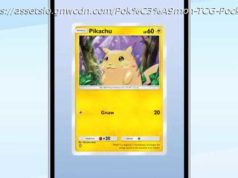Halfway through a contentious trial, Waymo settled its high-profile lawsuit against Uber in a deal that gives Google’s parent company Alphabet $245 million in Uber equity—a slightly larger stake than Google already has—and allows Waymo to keep tabs on Uber’s self-driving car program.
Halfway through a contentious trial, Waymo settled its high-profile lawsuit against Uber in a deal that gives Google’s parent company Alphabet $245 million in Uber equity—a slightly larger stake than Google already has—and allows Waymo to keep tabs on Uber’s self-driving car program.
It’s a crazy twist that lets both companies off the hook and leaves no clear winner in a case that was supposed to determine who would end up dominating the self-driving car market. Since the jury never got to weigh in, here’s our definitive Waymo v. Uber power ranking (in order of least embarrassed to most owned).
Through testimony from Uber’s former CEO Travis Kalanick, we know that Page, Alphabet’s CEO, was deeply, personally invested in Google’s development of self-driving cars. Kalanick described Page as “a little angsty” and “un-pumped” when Uber decided to start autonomous vehicle development in 2015, and even angrier when Uber began to poach heavily from Google’s self-driving car team. At one point, Kalanick claimed that he had to remind Page, “Your people are not your IP.”
Although Kalanick suggested his grudge match with Page motivated him to acquire autonomous vehicle startup Otto—one of the things he wanted to get out of the deal, according to testimony by one of his former employees, was “a pound of flesh”—Page ultimately scored the deepest gouge. The lawsuit hampered his competition and sidelined his former star employee Anthony Levandowski (perhaps permanently). Levandowski left Waymo with thousands of the company’s files that purportedly contained Waymo trade secrets, then quickly co-founded Otto, which was promptly scooped up by Uber.
Page didn’t settle until after Kalanick took a grueling turn on the witness stand, but Page never appeared on the stand himself. Page can’t get back the employees who decamped for Uber, and at this point, he might not want them. But the settlement of this case leaves Waymo with a window into Uber’s autonomous vehicle program (through an independent monitor) to make sure that Uber doesn’t start using Waymo’s trade secrets—and being able to keep a watchful eye on his competition has got to feel like victory.
A lot of the executives and engineers in this case clearly thought they were dominating a chess match against their rivals, but out of all of them, Page seems to be the one actually pulling strings while avoiding embarrassment and career collapse. Congrats, ya evil genius.
The venture capitalist and former Uber board member was on the stand for barely 15 minutes, but he managed to subtly call out Kalanick for lying, receive a compliment on his height from the judge, and didn’t make himself look completely out of touch.
Multiple forensic investigations on devices belonging to the Otto team turned up sketchy correspondence and internal Google documents. But it also unearthed a lot of random garbage, like a photo of a basket of muffins that ended up getting significant airtime during the trial. The word “muffins” was entered into the federal court transcript 12 times. “I don’t want to forget the muffins!” Uber’s lead attorney Arturo Gonzalez declared before the court, insisting that he be allowed to read a line item about the muffins into the record. “Yes, I remember the muffins,” a forensic analyst wearily replied to a question a few minutes later. The muffins, she explained, were at least tangentially related to the stolen Google files. “I don’t know if they’re located in the same folder as the muffins, but they’re on the same report as the muffins.”
There’s contention between software and hardware engineers throughout the tech industry about whose work is most important, and the autonomous vehicle world is no exception. Lidar, the hunk of metal and lasers that serves as the eyes of a self-driving car, got more headlines in the past year than any obscure piece of complicated hardware could ever hope to generate. During his testimony, Kalanick downplayed the value of lidar, and one Waymo hardware engineer griped in an email,“At least historically, high-value has been algorithms and software. The hardware (at all levels) was a second class citizen.”
If Waymo had gone on to win this case, hardware engineers throughout the industry could have pointed to the victory as a mark of their own importance. But even without a verdict, lidar got its day in the sun. It even got memorialized in earrings and at Burning Man !
Uber and its new CEO, Dara Khosrowshahi, have been hard at work on an apology tour, trying to clean up the reputational trainwreck that’s been underway at the company for the past year. Khosrowshahi is good at apologizing, and today was no exception: “I want to express regret for the actions that have caused me to write this letter,” he wrote following the settlement announcement. “We agree that Uber’s acquisition of Otto could and should have been handled differently.”
Uber doesn’t come out of this lawsuit looking great by any means. Despite the settlement, many people will likely remain convinced that Uber did steal trade secrets, just because, well, it’s Uber. But the company managed to dodge a permanent injunction that would have hampered its ability to develop self-driving cars, and cleared the path for its IPO next year. Uber also talked Waymo down from an initial ask of $1 billion to a cool $245 million. Not bad.
The timing of this settlement is a little awkward for Waymo. The company had been slowly laying the groundwork for its case this week, trotting out forensic evidence and damning texts and emails between Uber executives. But the real heart of its case—the technical details of its trade secrets—got unexpectedly and suddenly shelved today with the announcement of the settlement. Waymo also inexplicably burned up a bunch of its time yesterday going into seemingly unnecessary detail about how Google secures its cloud infrastructure, bringing in an engineer to explain basic cybersecurity terms like phishing and whitelisting to the jury. Looking back on it now, it’s possible Waymo’s lawyers knew the settlement was coming and was stalling to spare its self-driving car engineers from getting on the stand.
Or maybe Waymo really did have some bombshell evidence about how its technology ended up at Uber that it would’ve presented today if given the chance! But now we’ll never know.
Lyft is mayyybe coming out okay here. On the one hand, they didn’t end up acquiring Otto despite proposing to do so and, therefore, didn’t end up sitting across a courtroom from Google. On the other hand, given that Levandowski and the Otto team were planning to sell to Uber from the start, maybe Lyft got played and was never really in the running to buy Otto at all.
Kalanick emerged from trial relatively unscathed. The behind-the-scenes peek into his text messages and other correspondence leading up to the Otto deal was cringeworthy, but court testimony made it pretty clear that he instructed Levandowski not to bring Google trade secrets to Uber. Although he didn’t make it through his testimony without dropping a couple of painful catchphrases like “jam sesh” and “un-pumped,” he held it together on the stand and didn’t throw Levandowski under the bus when given an opportunity to do so, which was classy. He may be out as CEO, but he’s still on Uber’s board and the relatively low settlement price has to have put a smile on his face.






